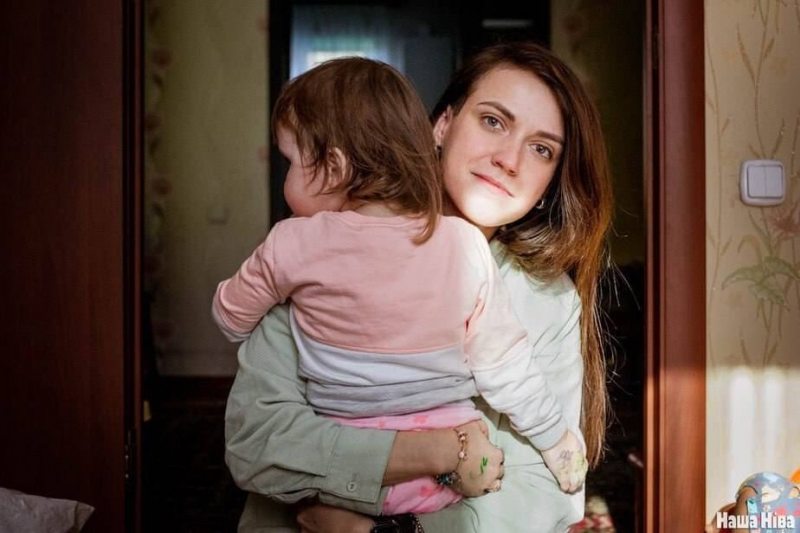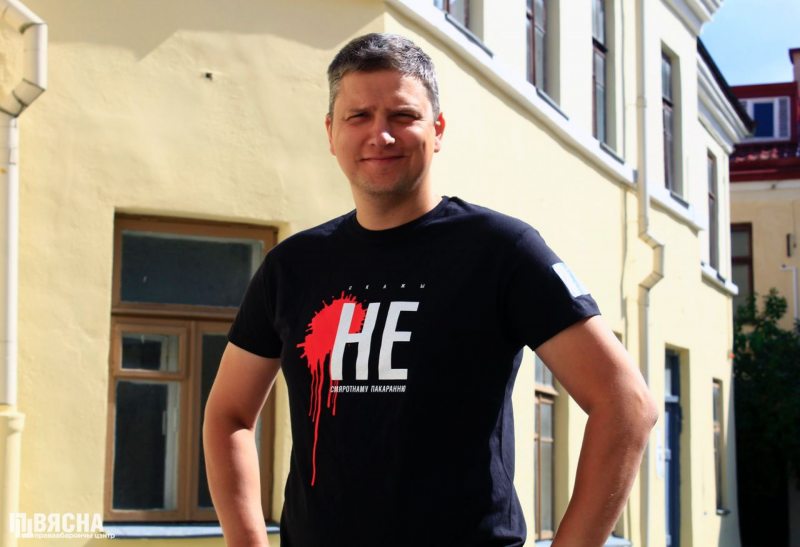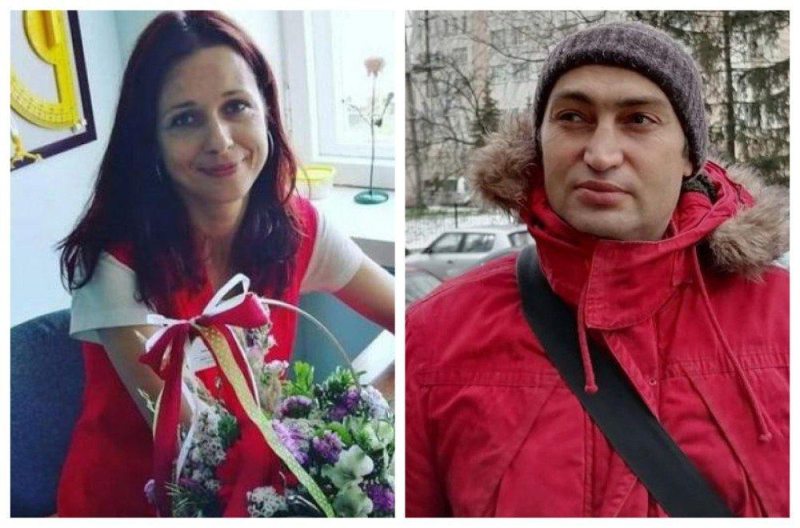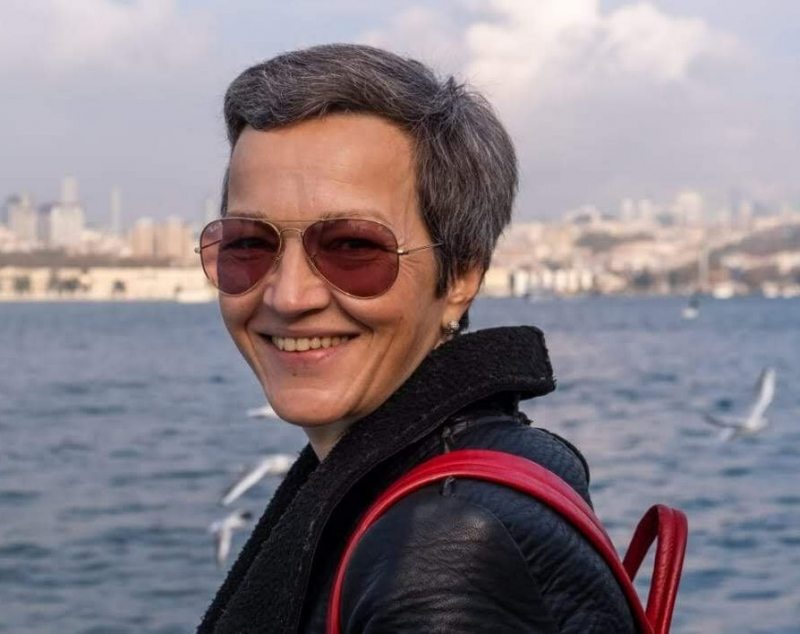How the authorities in Belarus persecute readers and journalists of “extremist" media
There are virtually no more independent media outlets within Belarus, with many now operating from abroad. Following widespread repression that started in 2020, citizens have faced unprecedented pressure. Non-governmental media outlets are under attack: the state revokes their registration, and journalists are arrested and sentenced to long prison terms for their work. The country’s primary media outlet TUT.BY was ruined, and its leaders, Editor-in-Chief Maryna Zolatava and general director Liudmila Chekina, are currently jailed.
In a move to further control the dissemination of information, the authorities have devised a new tactic. They label undesirable media outlets as “extremist groups.” Thus, individuals who interview or provide them with information can face lengthy prison sentences. In this article, Viasna explores the types of interactions with independent media that lead to criminal charges for Belarusians and shares instances of those who have already been sentenced.
Subscriptions and social shares
Since 2021, non-governmental media in Belarus have been recognized as “extremist” materials. Any online interactions like subscriptions, shares, reactions, and comments under publications with independent media have become risky. For such actions, people are either arrested or fined under Article 19.11 of the Code of Administrative Offenses (“distribution, creation, storage, transportation of information products that call for extremist activities or promote them”). Since 2021, there have been at least 2,540 cases of individuals being held administratively accountable under this article. Out of these, 512 individuals have been detained for a total of 8,343 days, and fines have been imposed totaling 83,313 base units (equivalent to $122,000).
Interviews and transfer of information
On June 16, 2021, amendments to the Law “On Counteracting Extremism” came into effect. Among other additions, a new clause was introduced for “promoting extremist activities.” A corresponding provision, Article 361-4, was added to the Criminal Code. “Promoting extremist activities” includes citizens’ interactions with independent media outlets that the government designates as “extremist groups.” Less frequently, such actions can be classified as “creating an extremist group or participating in one” (Article 361-1 of the Criminal Code).
The overly broad and vague definition of “extremist activity” provided by Belarusian legislation allows authorities to manipulate the wording to illegitimately restrict the right to information, freedom of speech, and freedom of association. Since 2021, independent media publications have been arbitrarily recognized as “extremist materials,” and the media themselves have been declared “extremist groups.”
As of now, according to the Belarusian Association of Journalists, 17 media outlets have been designated as “extremist groups.” This list includes Belsat, BelaPAN, Euroradio, TUT.BY, Kyky.org, Nasha Niva, RFE/RL, Charter'97, Flahštok, Hrodna.life, Volkovysk.by, Malanka Media, Babruisk Online, Brest Newspaper, Belarusian Association of Journalists, MOST, and Zerkalo.
The majority of known criminal persecution cases involve interactions with Belsat and Euroradio.
More than 70 individuals face politically motivated criminal charges under Article 361-4 of the Criminal Code. Many of them were sentenced for sharing photos and videos of Russian military equipment movements to the initiative Bielaruski hajun. We do not know all the details because “political” trials are often closed to the public.
Readers and journalists in jail
Those prosecuted under Articles 361-4 and 361-1 of the Criminal Code for interactions with independent media can be broadly categorized into two groups: readers and respondents, who give interviews and send information to media outlets, and actual journalists who are just doing their jobs.
Readers

- Darya Losik has been fighting for her husbands's release since he was arrested. Photo: Nasha Niva
Darya Losik, the wife of political prisoner Ihar Losik, was detained in fall 2022 for an interview with Belsat TV about her husband. She faced criminal charges for “promoting extremist activities,” particularly for her criticism of state bodies and claiming her husband’s imprisonment was unjust. The couple has a one-year-old daughter named Pavlina. In January 2023, Darya Losik was sentenced to two years in jail.
Natallia Dulina, a former Italian language lecturer at Minsk State Linguistic University, was arrested by at least six officers in October 2022. Previously, she had faced legal proceedings four times on politically-motivated administrative charges. While her trial was closed to the public, post-detention videos hint she was arrested for interviews with “extremist groups.” Earlier in 2022, she appeared on Euroradio, deemed “extremist” in July of that year. Dulina was also part of a Coordination Council, recognized as “extremist” in January 2023. In March 2023, she received a 3.5-year jail sentence for “promoting extremist activities” and participating in the 2020 protests.
Yahor Lebiadok, a military analyst, participated in two Euroradio live streams discussing the full-scale war in Ukraine and Belarus’s role in 2022. He had established his own Telegram-based channel in 2019 about Belarus’s military security. Lebiadok was detained in the summer of 2022 for media comments “promoting extremist activities.” In October, he faced additional charges, with authorities noting each extremist interview constitutes a separate offense. By December 2022, Lebiadok was sentenced to five years in a medium-security colony.
Siarhei Nikitsiuk, a musician from Žabinka, commented with “A windbag” under a Belsat TV post on social media featuring a quote from Lukashenka. On February 27, 2022, the day of a referendum, Nikitsiuk sent a photo of his ballot with two check marks to the Nexta channel editorial bot. On November 21, 2022, he was sentenced for “insulting” Lukashenka and “promoting extremist activities,” receiving a three-year general-security imprisonment term.

- Aliaksandr Danilevich's legal advice to dissident athletes Aliaksandra Herasimenia and Aliaksandr Apeikin and strike committees was deemed as “harm to national security” by the authorities.
Aliaksandr Danilevich, a lawyer, was detained in May 2022 for calling for sanctions and giving an interview to the internet resource Tribuna. A legal scholar fluent in multiple languages, he had academic stints in Italy, Switzerland, and the Netherlands. Danilevich previously headed the Belarusian Rugby Federation and signed a lawyer’s anti-war statement shortly before his arrest. The charges allege that from August 9, 2020, to May 20, 2022, he assisted in actions detrimental to the nation’s security, including drafting and editing statements containing allegedly false information about Belarus’s political and economic situation. He was also accused of urging a foreign company to end its contractual relationship with a Belarusian counterpart. On April 10, 2023, he was sentenced to a 10-year medium-security jail term.
Dzmitry Abramuk, a former political prisoner, faced new charges under Article 361-4. He believes the charges stemmed from the personal data of the employees of an open-type facility, where he served his sentence, that were published on the Dzikaje paliavannie (bel. ‘wild hunt’) Telegram channel. The posts on this channel referenced his interviews and media materials. Abramuk is currently not in Belarus.
Aliaksandr Zahdai, an Aviation Academy student, was arrested for sharing information with the Nexta editorial team. In the summer of 2022, he was sentenced to two and a half years in a general-security penal colony under Article 361-4 (“promoting extremist activities”).
Valiantsin Fedarenka from Homieĺ, an elderly man with a chronic mental condition, sent 160 SMS messages to the Belsat channel, providing information about the movement of Russian military equipment and the takeoffs of Russian aircraft. Details about Fedarenka’s trial, which took place after his detention in August 2022, remain scarce, including the verdict. It is only known that the court decision was announced on October 12.
Another individual convicted for cooperating with Belsat was Andrei Khanevich, a Grodno Azot worker and the Belarusian Independent Trade Union leader. Khanevich was charged based on a conversation with a Belsat journalist, where he reportedly shared some information. Authorities had been tapping Andrey’s phone and recording his conversations. In the fall of 2022, Andrei Khanevich was sentenced to five years in a medium-security penal colony for “discrediting Belarus” and “promoting extremist activities.”
Dzmitryi Shuvalau, a 28-year-old resident of Baranavičy, was charged for sending photos and videos of military equipment with comments to the Nexta editorial chatbot on Telegram. Nexta was designated an “extremist formation” on October 29, 2021. Shuvalau was sentenced on August 3, 2022, to two and a half years in a general-security penal colony.
Journalists
Currently, 33 media representatives remain incarcerated in Belarus, as monitored by BAJ.
Two leaders of the BelaPAN news agency, Iryna Leushyna and Dzmitry Navazhylau, were detained in August 2021 and charged with extremist activities. Leushyna has been sentenced to four years, while Navazhylau faces an additional tax evasion charge and has been sentenced to six years in prison.

- Pavel Mazheika allegedly leaked Ales Pushkin case details received from lawyer Yurhilevich to Belsat. Photo: Viasna
Journalist Pavel Mazheika was arrested in the late summer of 2022 upon returning to Belarus. He and lawyer Yuliya Yurhilevich were tried together, accused of sharing information with the Belsat channel. Both were sentenced to six years in jail on July 26, 2023. They both deny the allegations.

- Investigative Committee found footage of Tatsiana Pytsko in her husband Viachaslau Lazarau's working archive, suggesting her involvement with an “extremist group.”
Freelance videographer Viachaslau Lazarau and his wife Tatsiana Pytsko are accused of collaborating with an independent media outlet labeled “extremist” in Belarus. Lazarau was previously detained in 2020 during protest coverage. The couple is currently under investigation.
Yauhen Merkis, a journalist from Homieĺ who covered the 2020 presidential election protests, faced frequent detentions and fines. In September 2022, he was detained again for allegedly sharing military data and collaborating with Belsat. On May 30, 2023, he was sentenced to four years for extremist-related charges.

- “Iryna's cellmates are lucky in a way. She certainly won't let them or herself get discouraged,” says Iryna Slaunikava's collegue.
Iryna Slaunikava, a staff member of TVP (Telewizja Polska) and former Belsat employee, was detained at Minsk airport in October 2021. She was sentenced to five years in jail for “leading an extremist group” and participating in the 2020 protests.
Ales Liubenchuk, a journalist and videographer, was arrested in May 2022 for collaboration with Belsat. He was convicted in October 2022 and sentenced to three years in jail. Ales, an evangelical Christian from a traditional Pentecostal family, was involved in charity, aiding orphaned children and restoring cultural heritage.
Ivan Murauyou, a journalist, photographer, and owner of a lounge bar in Minsk, was detained in the summer of 2022 and accused of participating in an extremist group. His sentence, disclosed by the Belarusian Association of Journalists, was due to his video shoot for an investigation on Belsat, revealing links between oligarchs and allies of Lukashenka. He was sentenced on December 25, 2022, to two and a half years of imprisonment.

- Journalist Pavel Padabed was surveilled, his phone tapped, and trial evidence suggested ties to “extremist resources.”
In January 2023, Pavel Padabed was detained and charged with collaborating with independent media, specifically the Belsat channel. He was suspected of contributing to investigative reports, notably on the disappearance of videographer Dzmitry Zavadski and the murder of journalist Pavel Sheremet, as the Belarusian Association of Journalists reported. Evidence at his trial included wiretapped phone conversations implying ties to an “extremist resource” and cited messenger chats. On June 30, Padabed was sentenced to four years in jail.


















